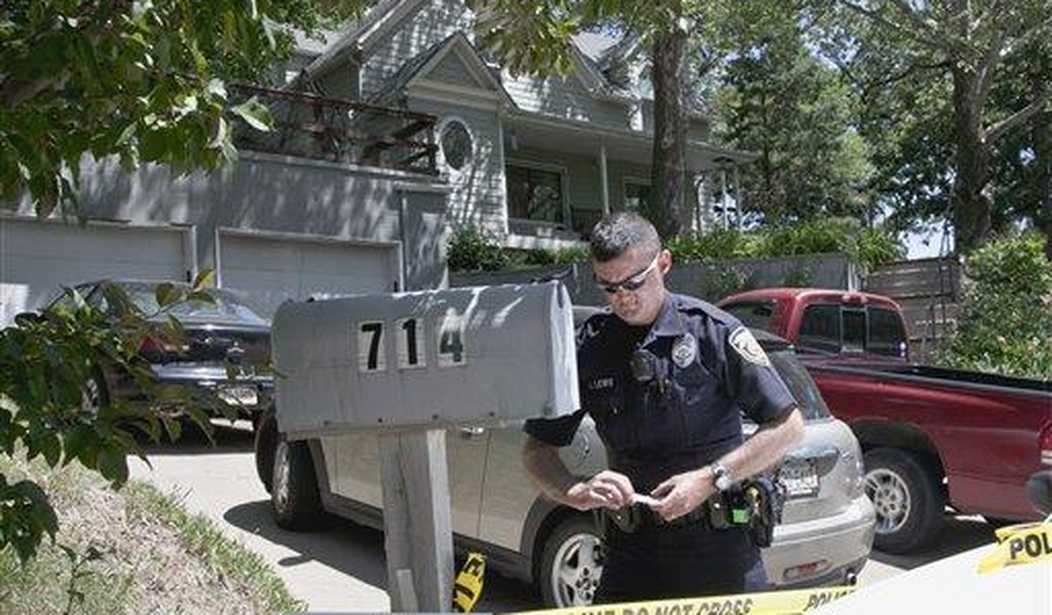It would be impossible, therefore, to introduce into society a greater change and a greater evil than this—the conversion of the law into an instrument of plunder. – Frédéric Bastiat
In case you haven’t noticed, I detest civil asset forfeiture with the fire of a thousand burning suns. This story illustrates precisely why we should all despise this practice, which is one of the most glaring examples of tyranny that most don’t know about.
I came across a report by the Flatwater Free Press detailing how a 24-mile stretch of Interstate 80 in Nebraska has gained notoriety for its frequent traffic stops that result in cash seizures without charges or convictions. Seward County’s sheriff’s department has aggressively employed civil asset forfeiture, despite a state law banning the practice, making it a major source of revenue for the county. Critics like myself argue that civil asset forfeiture allows law enforcement to target innocent individuals, instead of focusing on drug kingpins, and poses a threat to due process.
For those unaware, civil asset forfeiture is a legal process that allows law enforcement agencies to seize and keep property, including cash, vehicles, and other assets, that they suspect are connected to criminal activity. It often occurs without the need for a criminal conviction or even charging the property owner with a crime.
The Free Press’ report began by detailing the story of Christopher Bouldin, who was shaken down by police who extorted him for his money during a traffic stop:
In August 2020, flashing police lights stopped Christopher Bouldin’s van on this short ribbon of road as he headed west through Seward County. Within minutes, Bouldin found himself standing with his dog on the westbound shoulder.
Seward County deputies had just found $18,000 in cash rolled up in a blue sleeping bag in his backseat. It’s drug money, they alleged. It’s money for my trip to Colorado, Bouldin responded.
There, on the side of the road, 1,300 miles from his Virginia home, in a state where Bouldin knew no one, a sheriff’s deputy handed him a form.
You can sign this piece of paper, abandon the $18,000, avoid arrest and continue on to Colorado, he says he was told.
Don’t sign, and you will go to jail. You could face felony charges. Your van will be towed. Your dog will be taken to the pound.
“They were trying really hard for me to sign that,” Bouldin said.
The report notes that that situation “started when Bouldin got pulled over for following too closely.” The officer asked if he could search the civilian’s van. After Bouldin refused, the officer summoned a drug-sniffing dog, which are often used to manufacture probable cause allowing police to search people’s vehicles without consent. Spoiler alert: there were no drugs or weapons in Bouldin’s car.
Unfortunately, Bouldin is one of many individuals who have been targeted driving through Seward County. In fact, the county has raked in $7.5 million over the past five years:
Here, money is routinely seized without anyone being charged or proven guilty of anything. The sheriff’s department has specialized in and perfected the practice, known as civil asset forfeiture, despite a 2016 law meant to ban it in Nebraska.
One out of every three civil forfeiture cases in Nebraska’s state courts happens in Seward County, according to a Flatwater Free Press analysis of a decade of court records and a data request provided by the Nebraska Judicial Branch.
Nearly all begin when a Seward deputy stops a driver on I-80. Nearly all involve an out-of-state driver. And nearly all the seized money ends up in police hands, after drivers – faced with a split-second choice between money or jail – sign the form and abandon their cash.
The county has used its cut of the plunder to buy stun guns, a sheriff’s cruiser, a drone, ballistic shields, and a plethora of other goodies.
Officers typically take their ill-gotten gains by pressuring motorists to sign a form indicating that the civilian is willingly giving up their money or property to law enforcement. They do so under the threat of being taken to prison and charged with felonies. In essence, the officer offers to let them go in exchange for taking the money they confiscate as payment.
Does this not sound like a government official requesting a bribe?
The Free Press detailed a slew of other victims of government-sponsored extortion theft who had similar stories to Bouldin’s:
But another driver, Kenan, pulled over by Vance in 2019, said the interaction felt more like “extortion.” He was pulled over in 2019 with a small amount of drugs and $5,477.
Kenan told the Flatwater Free Press that, like Bouldin, he was given two choices: Be charged with two felonies and taken to a county jail 1,000 miles from home, or surrender the money and sign a form admitting guilt – a choice he believed would make it impossible to fight for the money later. He agreed to be quoted using only his first name because he’s now in college and looking for a job.
“He told me if I worked with him, then I wasn’t going to get in any trouble…as long as we signed a paper saying the money wasn’t ours, he would let us leave and drop the charges,” he told the Flatwater Free Press. “I didn’t want a felony charge in Nebraska. It seemed like a good deal to me.”
Civil asset forfeiture is already abusive enough. But Seward County has taken this form of tyranny to a whole new level in how it has employed the practice. Many of those caught up in their extortion racket had no contraband on them. Some only had small amounts of weed or other narcotics.
To be fair, law enforcement claims that they have caught human traffickers and suspected murderers on the Interstate. While this is a positive use of government resources, it is a deflection from the fact that they are actively robbing people who are undeserving of such treatment.
If you or I engaged in this behavior, we would be labeled as robbers and thieves, and thrown into cages. Yet, when one has a uniform, gun and badge, apparently this type of conduct is acceptable. Many states have passed legislation rolling back or doing away with civil asset forfeiture. Nebraska has too, but Seward County has found a loophole. The state legislature should address this issue to prevent more robberies from being committed by its boys in blue.













Join the conversation as a VIP Member